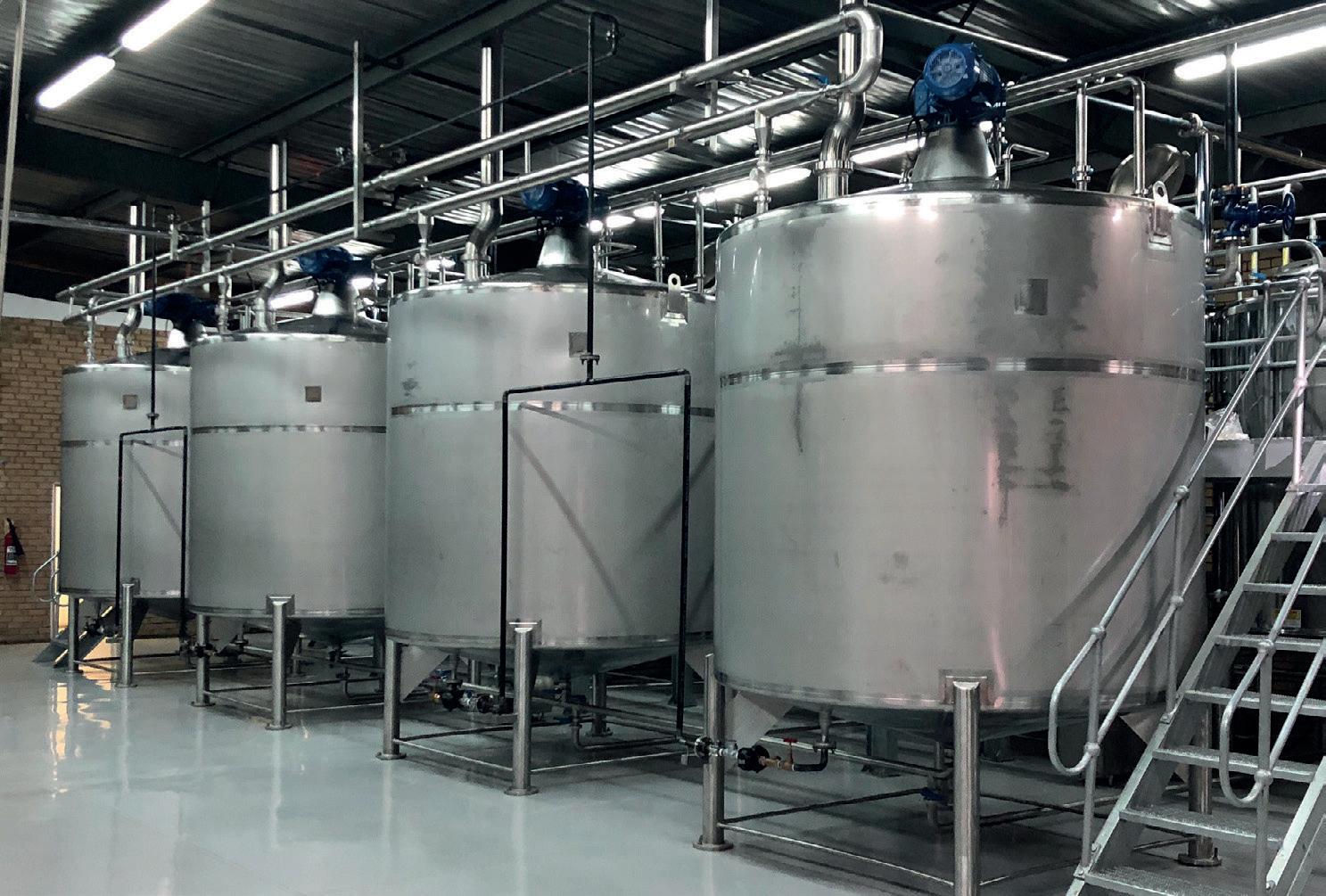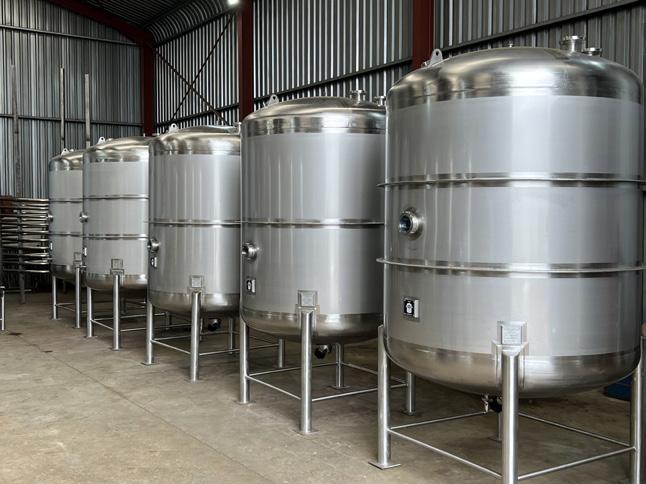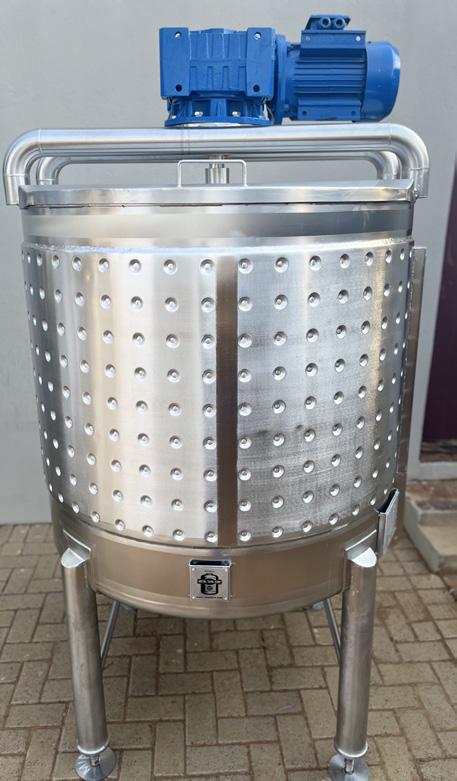CHEMICAL PROCESS TECHNOLOGIES




Situated on a sprawling 10,000m2 industrial site in Waltloo, Pretoria, Chemical Process Technologies (CPT) is an innovative chemical synthesis company exporting various products to more than 15 countries across five continents. MD Hannes Malan describes the abundant successes among the travails of recent times, and reveals how a focus on quality and the ability to develop and commercialise technology keeps setting CPT apart from the rest of the field.
PRODUCTION: Jamie Waters
Established in 2001 and now consummately staffed by 74 permanent employees, Chemical Process Technologies (CPT) is a private chemical synthesis company within the animal health
industry, also supplying fine chemicals to various other industries. The company specialises in the synthesis of several fine chemicals and formulates numerous end-user products, which are exported currently to countries in Europe, South America and Africa.

“The combined capacity,” opens MD Hannes Malan, “to synthesise active pharmaceutical ingredients (APIs) and formulate products positions CPT uniquely, in the Southern African animal health context.” CPT is, additionally, the parent company of CPT Pharma, which was granted a licence by the South African Health Products Regulatory Authority (SAHPRA) to manufacture APIs for human medicine back in August 2020 in a significant leap forward for the SA pharmaceutical industry.
“CPT animal health, meanwhile,” explains Malan of the key distinction between the two entities, “is focussed on the manufacturing of the active ingredient as well as the conversion or manufacturing of final products - a combination of chemical synthesis and contract manufacturing.”
ACTIVE GROWTH
“CPT is an innovative chemical synthesis company: we pride ourselves on our capacity and ability to develop and commercialise competitive organic synthesis routes.” CPT has the capacity to synthesise various molecules, Malan describes, and in developing its own process technology there is a great emphasis placed on current and environmentally responsible processes.
// THE COMBINED CAPACITY TO SYNTHESISE AND FORMULATE PRODUCTS POSITIONS CPT UNIQUELY IN THE SOUTHERN AFRICAN CONTEXT //Manufacturing Cubicle in Endo Plant
Typical chemical manipulations include oxidation, amidation, alkylation and heterocyclic chemistry, while technology for the commercial manufacturing of water-based nano-materials also exists within the company.
“We are in the process of commercialising another API,” Malan reveals, “and somewhere in the region of 75% of the way through developing the technology for a further three which we would like to manufacture locally and then export.” On the API side there are significant opportunities for growth. The number of animals in South Africa is staying largely the same,” he reasons, “and as a result, from a final product point of view, the market is almost fixed.
“We are still able to improve our
market share, nonetheless, by providing our renowned excellent service and also by means of the quality system that we have implemented and embedded within the company.

“From a growth perspective, however, there is not a lot of expansion left, but where we do still see a lot of possibilities and prospects is in the provision of active ingredients,” Malan says of the company’s priorities. “Because these are not used only in South Africa, but also in a fair number of other countries in the Southern Hemisphere, that is the area on which we are arguably most keenly focussed, in order to commercialise the technologies that we have developed as quickly as possible so that we can supply
more and more to these countries.”
Such idiosyncratic specialisms are going to prove ever-more crucial to distinguishing CPT from the strong
// CPT IS AN INNOVATIVE CHEMICAL SYNTHESIS COMPANY: WE PRIDE OURSELVES ON OUR CAPACITY AND ABILITY TO DEVELOP AND COMMERCIALISE COMPETITIVE ORGANIC SYNTHESIS ROUTES //Endo Plant Warehouse
players around it on both of the distinct arms of the business. “On the formulation side, it is with local formulators for final product that we are having to compete,” Malan assesses. “Again, the quality systems that we have implemented are really important in keeping us ahead.
“Multinational companies have the
same quality system and standards on the animal health products as on the human side, and we have moved a long way down that route ourselves. We are in the process of executing a project to upgrade one of our facilities to be GMP-compliant - set to be executed by Q3 of this year - which will set us apart from any of our competitors in
South Africa at this moment, most of whom are still adhering to far more lenient local regulations.
“This willingness to invest and continually improve our systems will stand us in excellent stead, and the GMP facility will also open up
Continues on page 8

Metal Tank Industries has more than 25 years’ experience in the fabrication and delivery of stainless steel plant, equipment and process solutions, including tanks, vessels, pipework, and supporting infrastructure. MD Rob MacGregor explains that strong partnerships are the foundation of the business, and he hopes to continue working hand-in-hand with longstanding clients through thick and thin.
At the Chemical Process Technologies (CPT) site in Pretoria, expansion is underway and long-serving partner, Metal Tank Industries, is taking the impressive facility to the next level with a number of significant upgrades.
“Currently, we are involved in two projects – one is an additional pharmaceutical plant that required a number of very specialised stainless steel reactors as well as stainless steel vacuum vessels and condenser units,” says MacGregor, adding that this turnkey project, which began last year, is starting to be delivered.
“Secondly, they are upgrading their pharmaceutical blending facility and that is a specialised HVAC facility for mixing various wet pharma products,” he continues. “We completely redesigned three cubicles in the wet plant and we are busy building new equipment for these cubicles – a specialised set of pharmaceutical blending vessels, pre-mix units, and reworking all the pipework in those cubicles to meet the latest Good Manufacturing Practice (GMP) standards.”
Removal of the existing stainless steel vessels & equipment in these cubicles, installed 15-20 years previously, has helped both companies to realise the level of quality innovation involved in these processes, and highlights the extent of a deep, local partnership.
“CPT is a very specialised Processor and not all of the equipment for their needs can be manufactured in SA,”
admits MacGregor. “But they have strong support for local manufacturing and everything we are producing is fully manufactured in SA, supporting a local supply chain, while proving that the SA skillset in the manufacturing space does exist in the stainless and specialised plant space.”
The reputation for excellence built over the past two decades has seen Metal Tank Industries remain busy, even through tough times, and the company is using all of its experience to overcome challenges.
“We have been very busy, across the SADC region, with food manufacturing, chemical, and brewery projects. But the manufacturing industry feels the pains from loadshedding. Commodity prices are very volatile and there has been stock shortage worldwide.
“Our mentality as a business, working in Africa in relatively tough conditions, means that you have to be inventive to thrive. Partnering with the likes of CPT is exactly how we want to expand, working together over long periods of time and following the growth,” he says.
When Metal Tank Industries began working with CPT, the site was just a few hundred square meters. Today, the world-class facility covers thousands of square meters and boasts some of SA’s best stainless steel production infrastructure.












Continued from page 6
further export opportunities which are currently not available to us.”
Malan also highlights the flexibility built into CPT’s manufacturing system as crucial to the success of the company’s formulation side. “Although it comes at a price,” he admits, “we also understand that our business is seasonal, and it is almost impossible to forecast when rain will come and therefore when customers will need our product. This makes things difficult, as the lead times on a lot of the raw materials that we import can be anything from six to
12 weeks, and opportunities do not wait around for this sort of timescale.
“We have built and tweaked certain aspects of our business to give the flexibility to ensure that we continually have enough of those required raw materials in place, aided by good relationships with our suppliers assisting us in short lead times for local deliveries. Our willingness to adjust our production plan to align with our customers’ priorities has, in turn, positioned us superbly well in the South African industry.

“From the chemical synthesis point of view, there is nobody else doing what we do in South Africa,” says Malan, of another vital differentiator.
“Our competitors are all located in India and China. How we set ourselves apart from them is through the technology that we develop. We still have to import most of our raw materials from the same supplier that they are using, therefore our approach typically is to look at
// HAVING THE ABILITY TO DEVELOP AND COMMERCIALISE TECHNOLOGY IS WHAT WE USE TO REMAIN COMPETITIVE //Packing Area in Endo Plant
the molecule that we believe to be of value and then see if there is anything we can do around the technology to allow us to manufacture the product cost-competitively in South Africa.

“Having the ability to develop and commercialise technology is what we use to remain competitive against these companies,” Malan analyses. “Going through the process of scaling up and commercialising is a painful, challenging route, but we believe that it is the only real way to maintain independence and competitiveness from a chemical manufacture point of view.”
The last few years have, for CPT,
been largely and mercifully free of the hardship and torment that has permeated around it. “For us, it has been good on the agricultural side - food supply has of course been very important and there have been very favourable conditions in the whole industry, with growth of around 24%, and we really benefited from that. We are still limited by the number of patients, of course, so our growth was modest, but still there.
“On the human side,” Malan closes, “what was most significant was the boom in interest in local manufacturing; we have had a lot of interest from the South African
government, and also from donor organisations who would like to ensure the Africa’s independence when it comes to pharmaceutical products.
“From that perspective, too, it has been incredibly positive, and we have established a wealth of new relationships and a large number of projects across the API manufacturing sphere, and we are incredibly excited to explore these.”
Published by CMB Media Group Chris Bolderstone – General Manager chris@cmb-media.co.uk Kiln House, Fuel Studios, Pottergate, Norwich NR2 1DX
T. +44 (0) 1603 855 161






E. info@cmb-media.co.uk www.cmb-media.co.uk
CMB Media Group does not accept responsibility for omissions or errors. The points of view expressed in articles by attributing writers and/ or in advertisements included in this magazine do not necessarily represent those of the publisher. Any resemblance to real persons, living or dead is purely coincidental. Whilst every effort is made to ensure the accuracy of the information contained within this magazine, no legal responsibility will be accepted by the publishers for loss arising from use of information published. All rights reserved. No part of this publication may be reproduced or stored in a retrievable system or transmitted in any form or by any means without the prior written consent of the publisher. © CMB Media Group Ltd 2023
